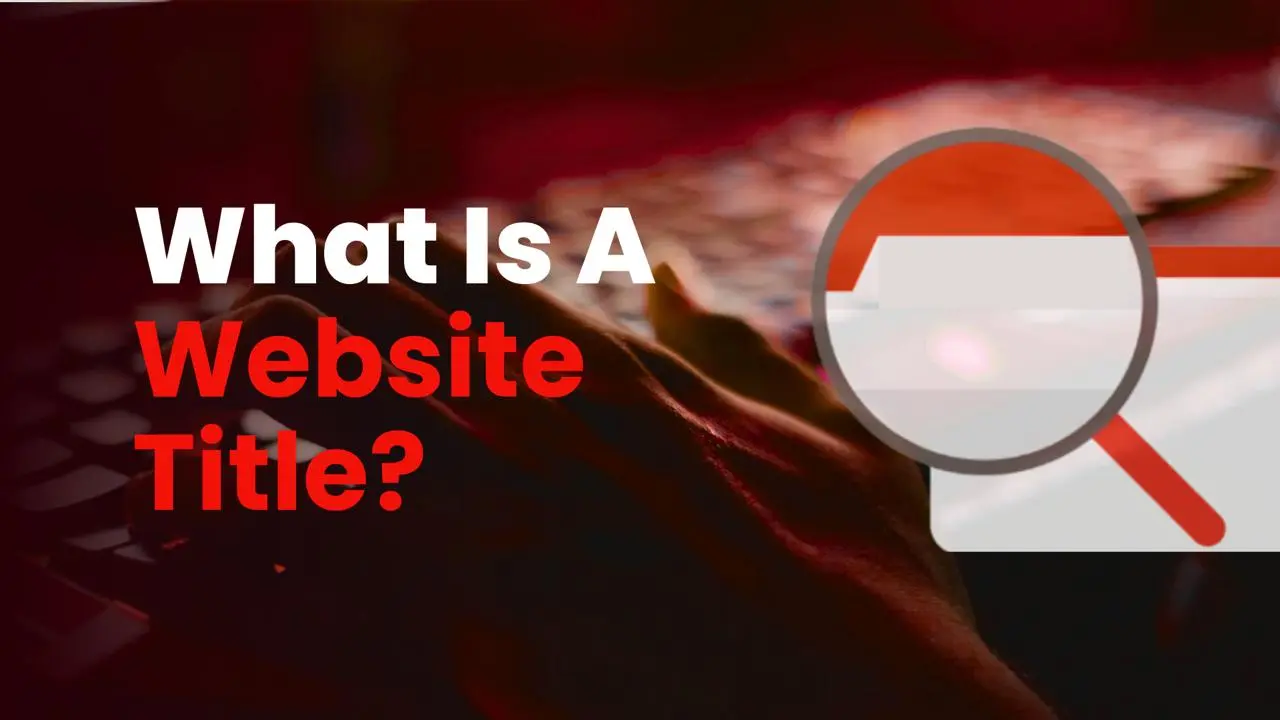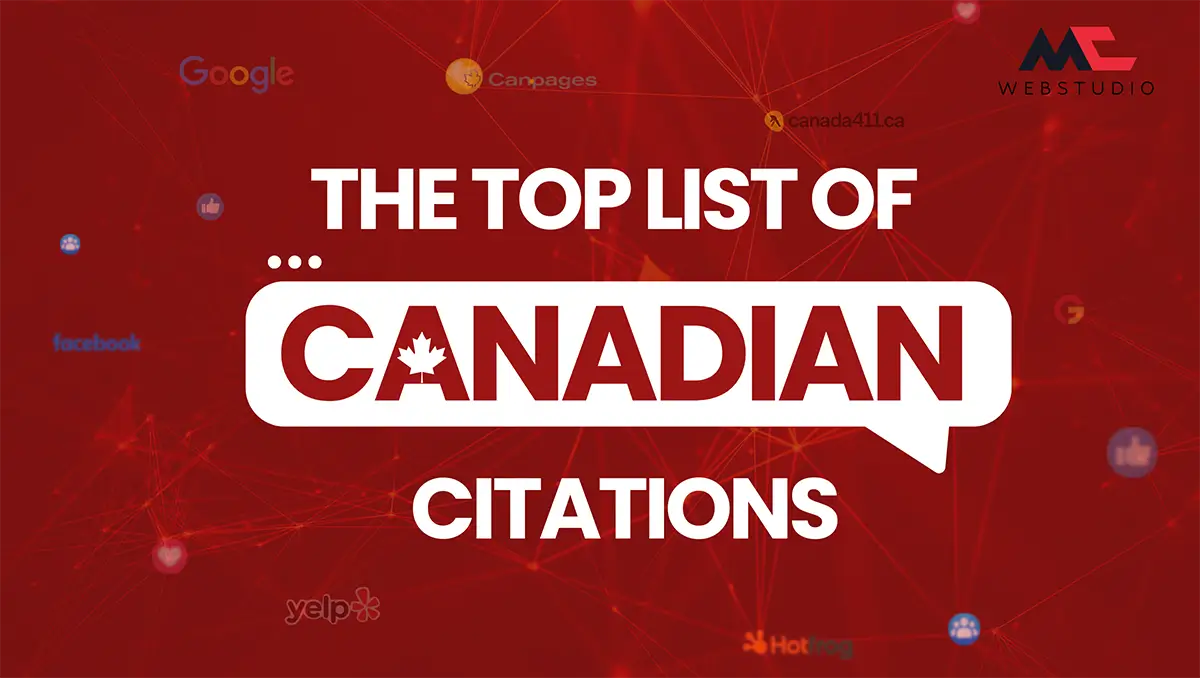
What Is A Website Title & Why Is It Important For SEO?

A website title, also known as a page title, is a fundamental element of web development and search engine optimization (SEO) that often serves as the first impression of a webpage. Positioned at the top of a browser window and as the clickable headline in search engine results, the website title succinctly describes the content and purpose of the page. This critical component not only guides users in their digital navigation but also plays a pivotal role in SEO strategies.
It informs search engines about the subject matter of the page, helping to align search queries with relevant content. The strategic crafting of a website title can significantly impact a site’s search engine rankings, making it a key consideration for anyone looking to enhance their online visibility. In this article, we delve into the nuances of website and page titles, exploring their importance and how they can be optimized to improve SEO performance.
Why Is A Website Title Important For SEO?
A website title is crucial for Search Engine Optimization for several reasons, each contributing to the overall visibility and effectiveness of a website in search engine results. Here’s why it holds such importance:
First Impressions
The website title is often the first thing a user sees in search results. An effective title can make a strong first impression, compelling the user to click through to the website. This initial interaction plays a critical role in driving traffic to the site.
Relevance & Context
Search engines use the website title to understand the content and context of a page. A relevant and descriptive title helps search engines match a page with appropriate search queries, increasing the likelihood of the page appearing in search results for those terms.
Search Rankings
Titles are a significant ranking factor in search engine algorithms. Keywords included in the title help signal to search engines what the page is about, making it more likely for the page to rank well for those keywords.
User Experience
A clear and descriptive title aids in user navigation and provides a quick understanding of what the page is about. This enhances the user experience by helping visitors decide whether the content meets their needs, which can reduce bounce rates and encourage longer site engagement.
Social Sharing
When a page is shared on social media, the website title is often used as the default text for the link. An engaging and informative title can increase the likelihood of shares and clicks from social platforms.
Bookmarking & Browsing History
Titles are used when a page is bookmarked or displayed in a user’s browsing history. A descriptive and memorable title makes it easier for users to find and return to the page later.
How Many Characters In A Website Title?
The optimal length for a website title for SEO purposes is typically a 50-60 character limit, including spaces. This range is recommended because search engines like Google often truncate titles in search results beyond this length, potentially cutting off important information or a focus keyword. Keeping your title within this character limit ensures that it can be displayed fully in search results, providing users with a clear understanding of your page’s content at a glance.
- Primary Keyword – Secondary Keyword | Brand Name: This format is widely used and recommended for its SEO benefits.
- Keep it Concise: As mentioned, aim for a title length of 50 to 60 characters to ensure that it isn’t truncated in search results.
- Be Descriptive and Relevant: The title should accurately reflect the content of the page.
- Uniqueness: Each page on your website should have a unique title to avoid confusion among users and search engines.
- Avoid Keyword Stuffing: While it’s important to include at least one relevant keyword, overloading your title with keywords (keyword stuffing) can harm your SEO performance.
- Use of Separators: Commonly used separators include dashes (-), pipes (|), and colons (:). These help to break up different parts of the title for readability while maintaining a structured and organized appearance.
- Appeal to User Intent: Consider what your target audience is searching for and how your page meets that need. Crafting your title with user intent in mind can improve click-through rates from the SERPs.
What Is A Website Title Example?
Homemade Italian Pasta Recipes -Gluten Free | Nice Pasta Co.
This title effectively incorporates several key elements:
- Primary Keyword: “Homemade Italian Pasta Recipes” is likely a search term users might enter when looking for pasta recipes, making it a valuable keyword phrase to include.
- Secondary Keyword: “Easy & Delicious” adds additional descriptive terms that are appealing to users looking for simple yet tasty meal options.
- Brand Name: “Nice Pasta Co.” is included at the end of the title, which helps with brand recognition and signals to users who the authority behind the content is.
Website Title Vs Website Name?
Website Title
- Purpose: Its primary purpose is to inform users and search engines about the content of the page, contributing to both usability and SEO. A good website title can improve click-through rates from search results by enticing users with a clear and relevant description of the page content.
- Usage: Website titles are unique to each page within a website. They should be carefully crafted to include relevant keywords and accurately reflect the page’s content.
Website Name
- Purpose: The website name’s primary purpose is brand recognition and recall. It helps users remember the website and serves as a cornerstone for the website’s branding efforts.
- Usage: The website name remains consistent across all pages of the website and is often included in the website title (usually at the end) for brand reinforcement. Unlike website titles, which are specific to each page’s content, the website name does not change.
Website Title Best Practices
- Be Descriptive and Concise: Your title should clearly and accurately describe the content of the page. Keep it succinct, aiming for a length of 50 to 60 characters to ensure it displays fully in search engine results without being truncated.
- Incorporate Relevant Keywords: Place important keywords towards the beginning of the title to improve visibility and search relevance. However, ensure the title remains natural-sounding and user-friendly.
- Avoid Keyword Stuffing: While keywords are important, overusing them can harm your SEO and user experience. Use keywords thoughtfully and sparingly to maintain readability and relevance.
- Unique Titles for Every Page: Each page on your website should have a unique title that reflects its specific content. This helps search engines understand the distinctiveness of each page and can improve your site’s overall SEO.
- Brand Name Inclusion: If space allows, include your brand name at the end of the title, separated by a pipe (|), dash (-), or another separator. This reinforces brand recognition and can increase click-through rates from users familiar with your brand.
- Match Title with Content: Ensure there’s a strong alignment between your title and the page content. Misleading titles can increase bounce rates and negatively impact your SEO.
- Use of Numbers and Power Words: Titles that include numbers (e.g., “Top 10 Tips”) or power words (e.g., “Ultimate Guide”) can be more enticing and are likely to attract more clicks.
- Avoid Using All Caps: Using all capital letters can come across as aggressive or spammy to users and can negatively impact click-through rates.
- Consider Search Intent: Tailor your title to match the search intent of your target audience. Whether they’re looking for information, making a purchase, or seeking a specific service, your title should make it clear that your page offers what they’re searching for.
- Use Structured Data: While not part of the title itself, implementing structured data (schema markup) can help search engines understand the context of your content and can lead to rich snippets, which may include the page title in a more prominent format in SERPs.
What Is A Website Title Vs URL
- Website Title: Acts as a quick, engaging summary of what a webpage contains. It’s what you see in bold at the top of a search result, aiming to catch your eye. Crafted wisely, it beckons you to click, promising valuable content on the other side.
- URL: It is the digital coordinates of the webpage. It’s the technical pathway that gets you to your destination on the vast internet. While it might include keywords that give you a clue about the content, its primary job is functional, ensuring a smooth and accurate arrival at the desired webpage.
How Do I Find A Website Title?
Finding a website title can be done in several straightforward ways, each providing insights into how a webpage is presented in browsers and search engines. Here’s how to locate a website title using different methods:
- Look in the Browser Tab: The title of a website is displayed in the browser tab when you open a webpage. Hovering over the tab usually shows the full title if it’s too long to be fully visible at first glance.
- Chrome Dev Tools: Right-click on the webpage and select “Inspect” to open Chrome Dev Tools. Then, look for the <title> tag within the <head> section of the HTML. This tag contains the website’s title. It’s a useful method for getting an exact title, especially if the browser tab truncates it.
- Chrome SEO Extensions: There are numerous SEO extensions available for Chrome, such as MozBar, SEOquake, or SimilarWeb. Once installed, these tools can provide detailed insights about a webpage with just a click, including the website title, without needing to dig through the HTML code.
- The SERP (Search Engine Results Page): When you search for a website or a specific webpage in a search engine like Google, the clickable link that appears in the search results is usually the title of the website or page. This not only shows you the title but also how it appears to users and search engines, providing context on its effectiveness in attracting clicks.
How Do I Change My Website Title?
Changing your website SEO titles involves editing the HTML code of your website, specifically the <title> tag within the <head> section of each webpage. Here’s a general guide on how to change your website title:
Using a Content Management System (CMS)
If your website is built with a CMS like WordPress, Joomla, or Drupal:
- Log in to the CMS Dashboard to access your website’s backend.
- Go to the section where you can edit pages (like “Pages” or “Posts” in WordPress).
- Find the page you want to change. Look for a field labeled as “Title,” “SEO Title,” or something similar. This is usually part of the SEO settings provided by plugins like Yoast SEO (for WordPress).
- After editing the title, make sure to save or update the page to apply the changes.
For Websites Without a CMS
If your website is a static HTML site or you prefer editing the HTML directly:
- You’ll need access to your website’s HTML files, typically through a hosting control panel or via FTP.
- Open the HTML file of the page you want to edit in a text editor or HTML editor.
- Find the <title> tag within the <head> section at the top of the HTML document. Change the text between <title> and </title> to your new title.
- Save the HTML file and upload it back to your server if you edited it offline.
What Are The Keywords For A Website Title?
Keywords for a website title are specific words or phrases that succinctly describe the main content or theme of a webpage. These keywords are strategically selected to align with the terms and queries your target audience might use when searching for information, products, or services related to what your page offers.
Including relevant keywords in your website title is crucial for SEO because it helps search engines understand the content of your page and can improve your page’s visibility in search engine results pages (SERPs). Here’s how to identify and select keywords for your website title:
- Start by identifying the main topics your website or a specific webpage covers. These topics should reflect the content and services you provide.
- Understand the search habits of your target audience. What terms or phrases are they likely to use when looking for the content or services you offer?
- Tools like Google Keyword Planner, SEMrush, Ahrefs, or Moz Keyword Explorer can help you find keywords related to your topics. These tools provide data on search volume, competition, and relevance.
- Look at the titles of top-ranking pages for your target keywords. This can give you insights into what keywords are effective in your niche.
- Choose keywords that are specific to the content of your page and relevant to your target audience’s search intent. Long-tail keywords (phrases that are more specific and usually longer than more commonly searched for keywords) can be especially effective for targeting particular niches.
- While specific keywords can attract highly targeted traffic, including a broader keyword can help ensure you don’t miss out on potential traffic.
- Your title should read naturally to users. Avoid keyword stuffing (overloading your title with too many keywords in an unnatural way), as this can negatively impact user experience and your search engine ranking.
What Is The Best Website Title?
The “best” website title effectively balances SEO optimization with user engagement, clearly communicating the content and value of the page while incorporating relevant keywords to improve search visibility. However, the ideal title can vary widely depending on the content of the page, the target audience, and the competitive landscape. Here are some general characteristics that make a website title stand out as “best” in its context:
- Descriptive and Concise
- Incorporates Keywords
- Engaging and Compelling
- Unique and Specific
- Brand Name Inclusion (when appropriate or required for branding purposes)
- Matches Search Intent
Does Google Change Website Titles?
Yes, Google can and sometimes does change website titles in search engine results pages (SERPs). While Google generally prefers to use the title tags specified in the HTML of a webpage, it may alter this title for several reasons:
- Relevance: Modifies titles for better alignment with search queries.
- Length: Shortens overly long titles for complete display in SERPs.
- Keyword-Stuffing: Replaces keyword-stuffed titles with natural ones.
- No Title: Generates titles from page content if missing.
- Brand Info: Adds brand/site names for context if omitted.
- Duplication: Changes duplicate titles to help users distinguish pages.
Conclusion
The website or meta title plays a pivotal role in both SEO performance and user engagement. It acts as a first impression, guiding users from search engine results to your webpage. Crafting a perfect website title involves balancing relevancy, conciseness, and keyword optimization to accurately reflect the content of the page while appealing to the target audience. By giving due attention to your page titles, you can significantly improve your site’s visibility, attract more traffic, and provide a clearer navigation experience for your visitors.
What Is A Website Title: Frequently Asked Questions?
Why Is Website Title Important For SEO?
The website title is crucial for SEO because it's a primary factor search engines use to determine the relevance of a webpage to a user's query. A well-crafted title helps improve your website's visibility in search engine results pages (SERPs), enhances click-through rates, and can positively affect your site's ranking.
Where Can I Find a Website Title?
You can find a website title in several places:
- At the top of a browser window or tab when you visit a webpage
- In the search engine results pages (SERPs) as the clickable headline for a listing
- Within the page's source code in the `<title>` tag located in the `<head>` section
Related Posts

